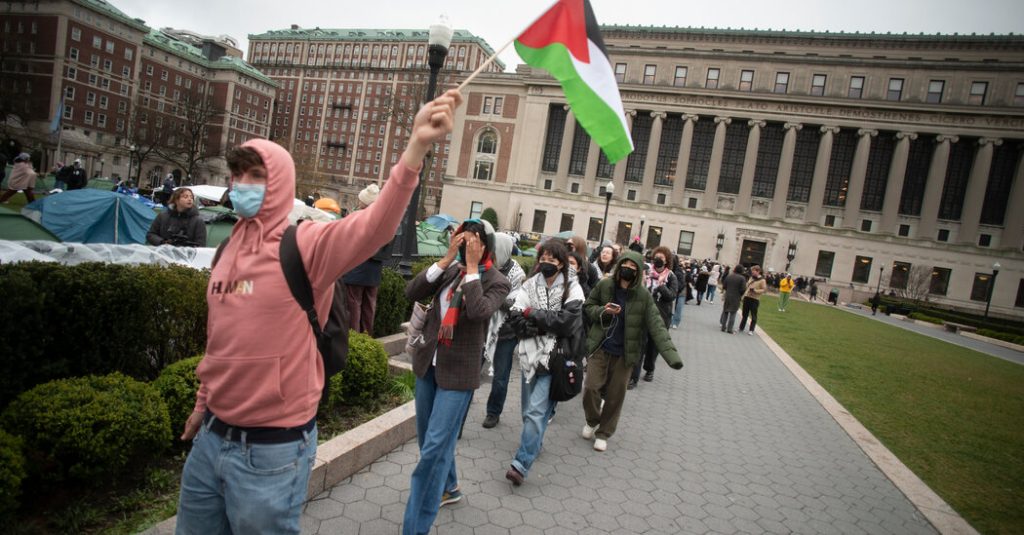Student activists at Columbia University responded defiantly to the university’s decision to clear an encampment used to protest the Israel-Hamas war by erecting new tents and organizing a protest on campus. Despite more than 100 protesters being arrested and the encampment being cleared, the students remained determined and upbeat, planning to stay the night and continuing their protest. The university’s decision to involve law enforcement came after a congressional hearing where they agreed certain phrases might warrant discipline, leading to criticism from academic freedom experts. Columbia’s president, Nemat Shafik, defended the decision as necessary to address the disruption caused by the encampment and the violations of campus rules.
Other campuses have also taken more aggressive measures against student protesters, such as making arrests and suspending or expelling students, in response to protests related to the Palestinian cause. While some argue that removing students for violating policies is justified, others believe that compromising academic freedom by investigating protected speech is troubling. Historian Angus Johnston noted similarities between the current student protests and the 1968 protests during the Vietnam War, which ultimately led to concessions from universities. Johnston warned against a spiral of increasingly aggressive protests if universities continue to suppress student activism.
Despite the arrests and police presence at Columbia, the student activists remained undeterred, with one protester expressing confidence that the momentum would spread across campuses in the U.S. The students who set up the encampment and were later arrested saw their actions as a catalyst for broader activism and change. The response to the protest reflects broader questions facing college administrators about how to address student activism and free expression on campus. While some advocate for more stringent tactics to quell protests, others argue for consistently applied policies that respect academic freedom and free expression. The ongoing protests and responses from universities underscore the complex dynamics of activism on college campuses and the challenges of balancing student expression with campus regulations.


